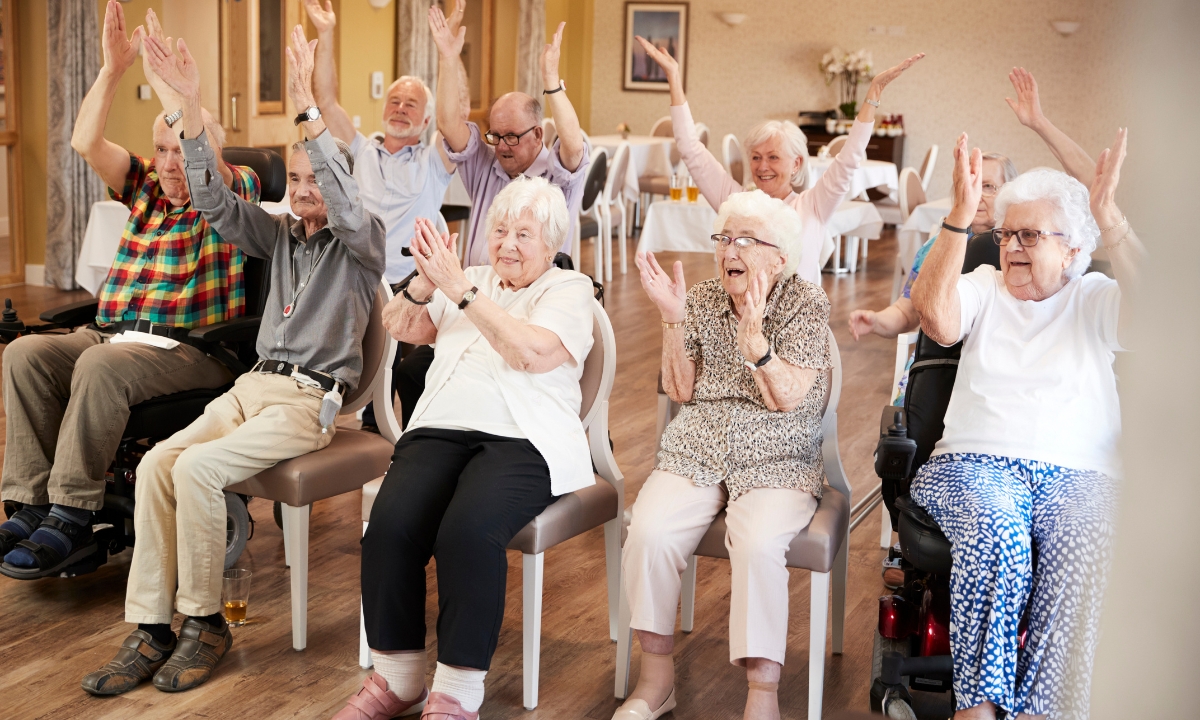As our loved ones age, their physical and cognitive needs may take center stage, but we often overlook an equally important aspect of their well-being—socialization. Maintaining strong social connections is crucial for seniors, helping them stay mentally sharp, emotionally fulfilled, and physically active. For many seniors, the challenges of aging, including mobility issues, health concerns, and the loss of friends or family members, can lead to isolation. Finding ways to keep your loved one engaged and connected is essential to their overall quality of life.
At Reliant Home Care Services, we understand the importance of socialization for seniors. Once you see why socialization is so vital, you’ll better understand the risks of isolation and how in-home care can help foster meaningful social interactions for your loved one.

Why Socialization is Important for Seniors
Socialization isn’t just about having someone to talk to—it plays a key role in maintaining mental, emotional, and even physical health. Regular interaction with others helps to combat feelings of loneliness and depression, keeps the mind engaged, and can even improve physical health by encouraging activity and movement.
Mental Health Benefits
One of the most significant benefits of socialization for seniors is the positive impact it has on mental health. According to the National Institute on Aging (NIA), loneliness and social isolation have been linked to higher rates of depression, anxiety, and even cognitive decline in seniors. Seniors who stay connected with others through social activities, conversations, or shared interests are more likely to maintain mental clarity and emotional well-being. These interactions help reduce feelings of isolation and provide a sense of purpose and belonging.
Cognitive Health Benefits
Socialization is also important for maintaining cognitive health. Studies have shown that seniors who engage in regular social activities tend to experience slower rates of cognitive decline compared to those who are isolated. According to research, social interactions can help stimulate the brain, keeping it active and improving memory and problem-solving skills. For seniors who are concerned about cognitive health or those at risk for dementia or Alzheimer’s, staying socially engaged is one of the best ways to keep the mind sharp.
Physical Health Benefits
Social connections can also positively affect physical health. Seniors who engage with others are more likely to participate in physical activities such as walking, gardening, or even dancing—activities that can help maintain strength, balance, and mobility. A study by the University of California, San Francisco found that socially isolated seniors were nearly twice as likely to experience a decline in physical function, leading to difficulties with daily activities like dressing or bathing. Socialization helps encourage seniors to stay active and engaged, which can lead to better overall physical health.
The Risks of Isolation for Seniors
While the benefits of socialization are clear, the risks of isolation are just as important to understand. Many seniors face challenges that can lead to isolation, including:
- Loss of a spouse or friends
- Decreased mobility or physical limitations
- Living alone
- Lack of transportation
- Health conditions that limit activity
Isolation doesn’t just affect mental and emotional health; it can have serious physical consequences as well. According to the CDC, social isolation in seniors is associated with a nearly 50% increased risk of dementia, a 32% higher risk of stroke, and a 29% increase in the risk of heart disease. Loneliness can also lead to poor sleep, higher blood pressure, and a weakened immune system.
For these reasons, finding ways to keep your loved one socially engaged is not only important for their happiness, but also for their long-term health.
How In-Home Care Can Help Foster Socialization
If your loved one is struggling with social isolation or has difficulty maintaining connections, in-home care services can help provide opportunities for interaction and engagement. While in-home care providers primarily assist with daily activities such as personal care, medication management, and meal preparation, they also play an important role in fostering meaningful social interactions.
1. Regular Conversations and Interaction
One of the simplest but most effective ways in-home care providers can help with socialization is through regular conversations and interactions. Whether it’s discussing the news, talking about family, or sharing stories, these interactions help your loved one feel connected and engaged. Having someone to talk to on a daily or weekly basis helps alleviate feelings of loneliness and provides mental stimulation.
2. Encouraging Participation in Hobbies and Activities
In-home caregivers can also encourage your loved one to participate in hobbies and activities that bring them joy. Whether it’s reading, knitting, puzzles, or gardening, engaging in activities they love can help seniors feel a sense of accomplishment and fulfillment. Additionally, caregivers can help facilitate participation in social activities outside the home, such as senior centers, community events, or family gatherings, ensuring your loved one remains active in their social circle.
3. Supporting Communication with Friends and Family
Technology can be a powerful tool for helping seniors stay connected with loved ones, especially if they live far away. In-home caregivers can assist with setting up video calls, helping your loved one navigate social media, or even organizing phone calls with family and friends. Staying in touch with loved ones through technology can provide a sense of continuity and help prevent feelings of isolation.

Ways to Encourage Socialization Outside of In-Home Care
While in-home care can provide valuable opportunities for social interaction, it’s also important to explore other ways to help your loved one stay connected. Encourage participation in community events, church activities, or senior centers where they can meet and interact with others. If transportation is an issue, consider organizing family visits or arranging for a community volunteer to provide transportation.
Reliant is Here to Help Your Loved One Stay Social
Socialization is a vital component of your loved one’s overall well-being, and ensuring they stay connected with others can have lasting positive effects on their mental, emotional, and physical health. At Reliant, we’re committed to not only providing the highest level of care but also fostering meaningful connections that help your loved one feel engaged, supported, and valued.
If you’re concerned about your loved one’s social isolation, contact us today to learn more about how our in-home care services can support their social and emotional well-being. Together, we can help your loved one maintain a healthy, fulfilling life.

